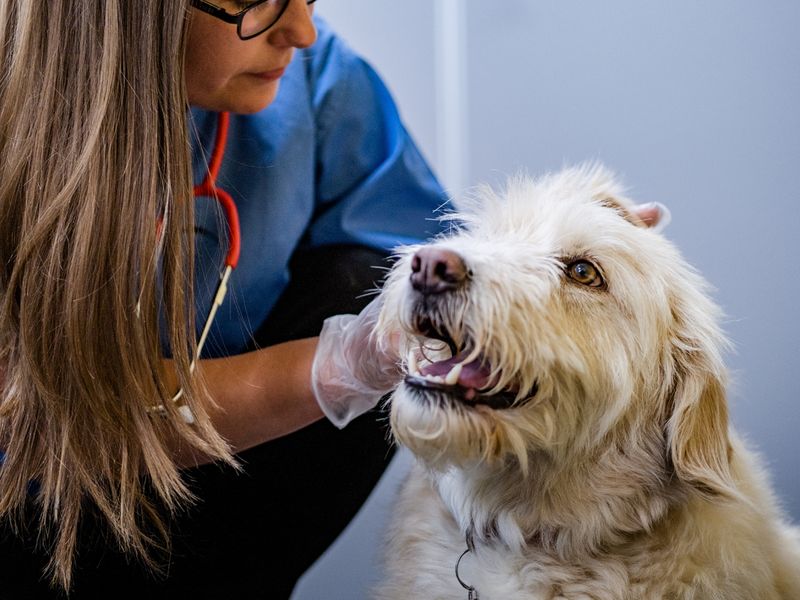Vet care on a budget
Advice on vet bills, booking an appointment, insurance and vet care plans.

With rising inflation, it’s more expensive than ever to care for our pets and vet bills can be a significant cost. Here you’ll find our advice on keeping your dog happy and healthy without breaking the bank, and what to do in a crisis.
Health checks at home
By regularly checking your dog you can make sure any problems are picked up early and your dog gets the help that they need.
Visiting the vet
If you’re ever concerned about your dog, contact your vet practice directly for advice.
Take a look at our list of signs that your dog should see a vet, or see if your vet has an online symptom checker, to assess how urgently your dog needs to be seen.
If you have a few issues to discuss, ask your vet if it’s possible to book a double appointment, and if this has an extra cost.
If your vet feels that you don’t need an in-person consultation, they may be able to offer medical advice via email or phone, which could be more cost effective. If they’ve seen your dog recently for the same condition, they may be able to prescribe medication without another face-to-face consultation, however this will depend on the medication being prescribed. They may not be able to prescribe medication if they’ve never seen your dog, or if the condition they’re suffering from hasn’t been assessed by the vet before.
Vet care plans
Ask your vet practice if they offer care plans to spread the cost of essential pet care such as preventative treatment.
A monthly or yearly plan often works out to be more cost effective. This is not an alternative for insurance, you should have that as well.
These plans may include:
- a puppy vaccination package plus boosters
- health checks
- discounts on neutering and dental procedures
- veterinary approved flea and worming treatment
Ask your vet for more information about plans they offer.
What to do if you need help with your vet bills
If the estimate for recommended procedures and treatment isn’t affordable, ask about the possibility of lower-cost treatment, as there might be other options.
If a recent trip to the vets has been expensive, your vet may be able to help with a payment plan. Ask the staff at your vet practice if this is something they offer.
Is pet insurance worth it?
It may be tempting to cancel your dog’s insurance if money is tight, but this could lead to bigger costs further down the line if your dog becomes unexpectedly ill or needs surgery in the future.
You may want to explore a different insurance provider to see if you can find something more cost-effective. But be aware that changing to a cheaper provider or policy may result in a less comprehensive policy and could mean more insurance exclusions (e.g. exclusion of pre-existing conditions). Always check the details of a potential new policy before cancelling your current insurance. Or you could check with your current insurance provider if you can downgrade to a lower premium or grade of policy. This may result in less comprehensive cover, but pre-existing conditions should still be included.
Diet and nutrition advice
To save on the cost of dog food, you may be tempted to switch to a cheaper option. Always speak to your vet before deciding on any diet change, and make sure that any new food is nutritionally balanced. You’ll also need to ensure any new food is appropriate for your dog’s individual needs and introduce it gradually so it doesn’t upset their stomach. Your vet will be able to advise you on this.
For more info on how to keep your dog healthy, check out our diet and nutrition advice. For simple homemade treats, check out our recipes.






.jpg)




